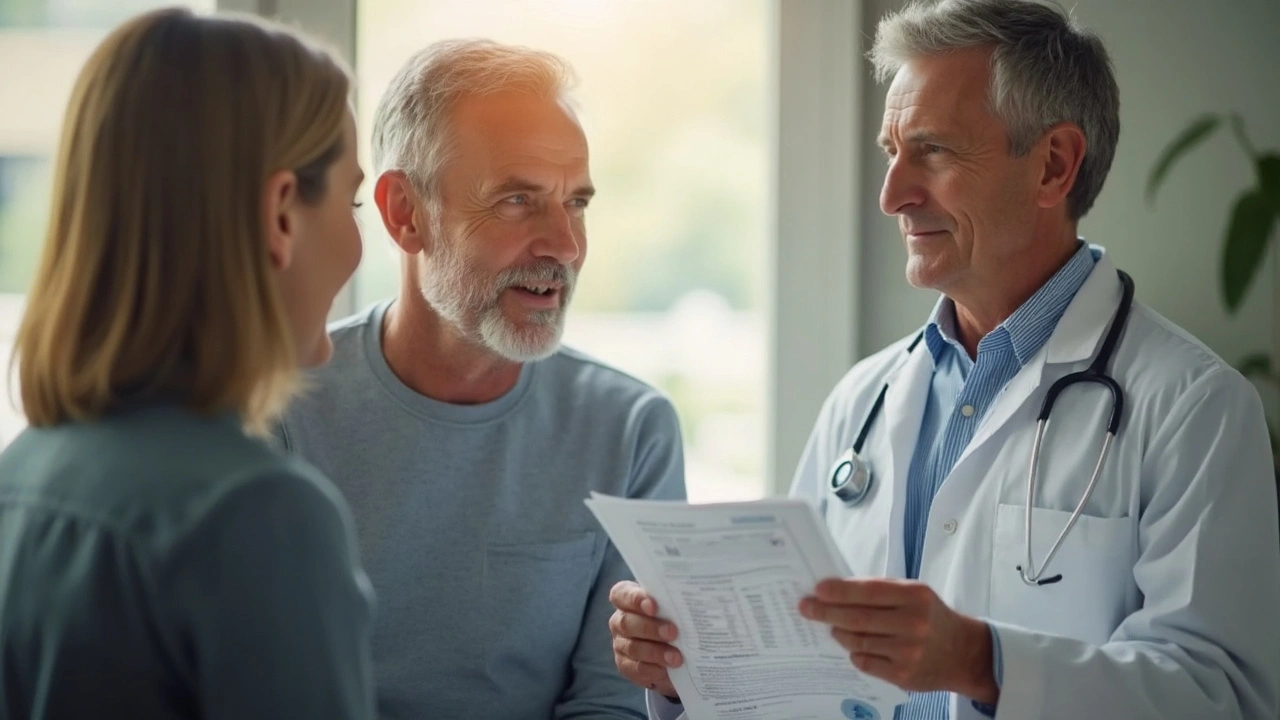Prostate Cancer: What You Need to Know
Prostate cancer is one of the most common cancers in men, especially after the age of 50. It starts in the prostate gland, a small organ that makes fluid for sperm. Most cases grow slowly, but some can spread quickly. Knowing the basics helps you spot problems early and make smarter health choices.
Signs, Symptoms & When to Get Checked
Early prostate cancer often has no symptoms, which is why regular screenings matter. When symptoms do appear, they might include trouble starting urination, a weak stream, frequent trips to the bathroom at night, or a feeling that the bladder isn’t empty. Blood in the urine or semen and pain during ejaculation can also show up. If any of these happen, talk to a doctor right away.
Diagnosis, Treatment & Lifestyle Tips
Doctors usually start with a PSA (prostate‑specific antigen) blood test. Elevated PSA levels can signal a problem, but they don’t confirm cancer. If PSA is high, the next step is a digital rectal exam (DRE) and possibly an MRI or ultrasound‑guided biopsy. A biopsy removes a tiny piece of tissue to check under a microscope.
Once cancer is confirmed, treatment depends on the stage and how aggressive the tumor is. For low‑risk cases, active surveillance – regular PSA tests and check‑ups – can be enough. When treatment is needed, options include surgery to remove the prostate (radical prostatectomy), radiation therapy, hormone therapy to lower testosterone, and, in some cases, chemotherapy. Your doctor will discuss side effects like urinary incontinence or erectile dysfunction and help you choose the best path.
Living with prostate cancer also means taking care of your overall health. A balanced diet rich in fruits, vegetables, whole grains, and lean protein can support recovery. Regular exercise, especially strength training and cardio, helps maintain muscle mass and lower fatigue. Reducing alcohol, quitting smoking, and managing stress improve outcomes and quality of life.
Follow‑up care is crucial. Even after treatment, PSA levels need monitoring every few months to catch any recurrence early. Report new urinary or sexual symptoms promptly – early intervention can make a big difference.
Finally, don’t forget the emotional side. A prostate cancer diagnosis can feel overwhelming, but support groups, counseling, and talking openly with family can ease the burden. Many men find that staying informed and proactive gives them confidence to handle the journey.
If you or someone you know is at risk, schedule a PSA test, talk to a urologist, and keep the conversation going. Early detection and a clear treatment plan are the best ways to stay ahead of prostate cancer.

Casodex: Uses, Benefits, Side Effects, and Patient Advice
Discover how Casodex helps manage prostate cancer, what to expect from treatment, possible side effects, and practical tips for patients and caregivers.